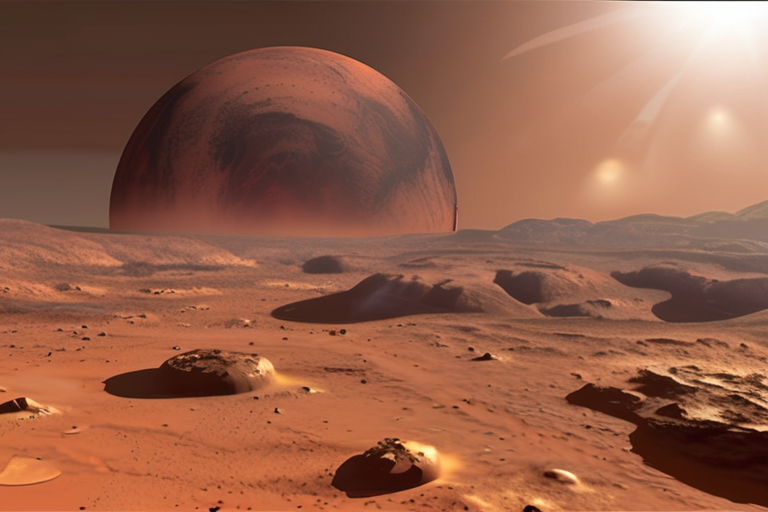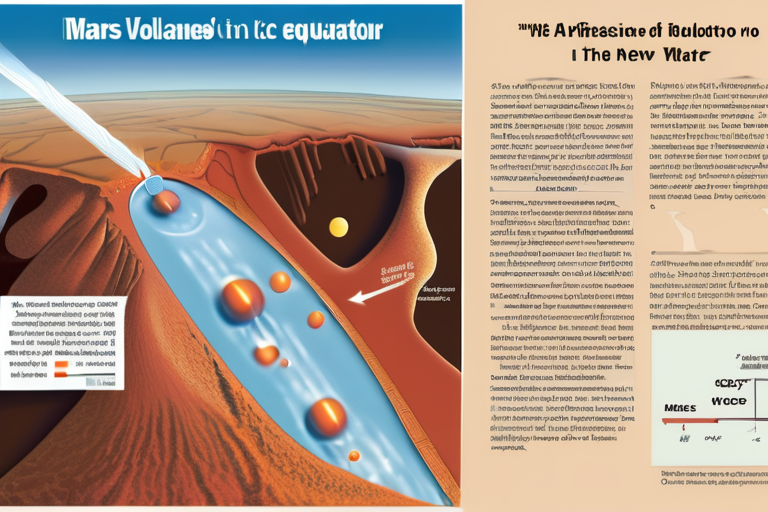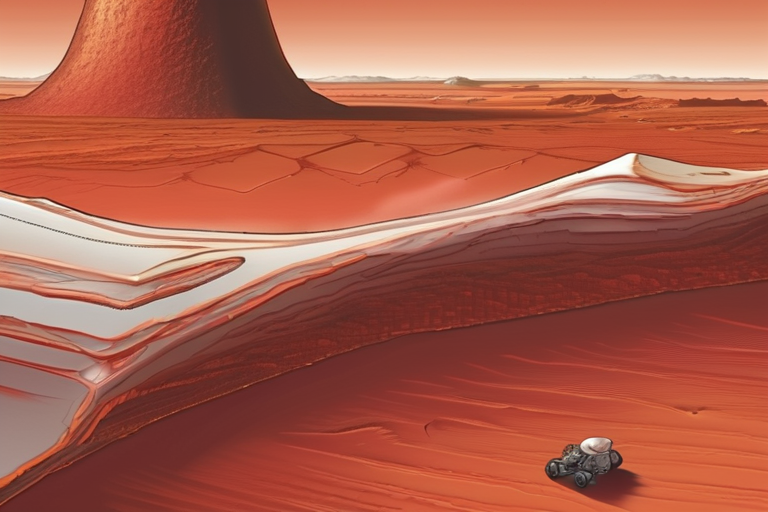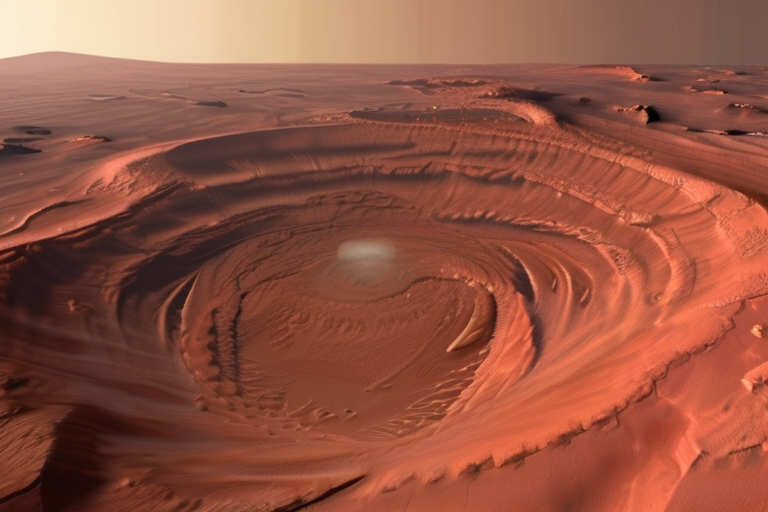Mars Volcanoes Unleashed Ice at Equator, Rewriting Red Planet's History


Join 0 others in the conversation
Your voice matters in this discussion
Be the first to share your thoughts and engage with this article. Your perspective matters!
Discover articles from our community

 Hoppi
Hoppi

 Hoppi
Hoppi

 Hoppi
Hoppi

 Hoppi
Hoppi

 Hoppi
Hoppi

 Hoppi
Hoppi

Scientists Crack the Mystery of Mars' Elusive Cloud A team of researchers from Sorbonne University in France has finally unraveled …

Hoppi

Mysterious Mars Cloud Solved: Scientists Reveal the Secret to its Formation A team of researchers at Sorbonne University in France …

Hoppi

Mars Volcanoes May Have Transported Ice to Equator, Scientists Suggest A team of researchers has proposed a groundbreaking theory that …

Hoppi

Mars Volcanoes May Have Transported Ice to Equator, Scientists Suggest A team of researchers has proposed a groundbreaking theory that …

Hoppi

Mars' Lost Atmosphere: A Glimpse into the Red Planet's Forgotten Past A team of astronomers at Collège de France in …

Hoppi

Mars Weather Data Reveals Red Planet's Hidden Fury A groundbreaking study published this week in Science Advances has shed new …

Hoppi